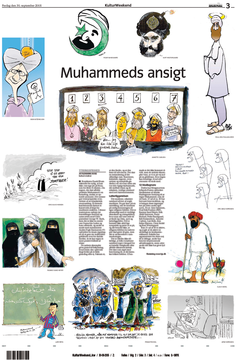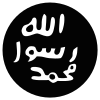Stanley Eugene Fish is an American literary theorist, legal scholar, author and public intellectual. He is currently the Floersheimer Distinguished Visiting Professor of Law at Yeshiva University's Benjamin N. Cardozo School of Law in New York City. Fish has previously served as the Davidson-Kahn Distinguished University Professor of Humanities and a professor of law at Florida International University and is dean emeritus of the College of Liberal Arts and Sciences at the University of Illinois at Chicago.

Yale University Press is the university press of Yale University. It was founded in 1908 by George Parmly Day and Clarence Day, grandsons of Benjamin Day, and became a department of Yale University in 1961, but it remains financially and operationally autonomous.

Index on Censorship is an organisation campaigning for freedom of expression. It produces a quarterly magazine of the same name from London. It is directed by the non-profit-making Writers and Scholars International, Ltd (WSI) in association with the UK-registered charity Index on Censorship, which are both chaired by the British television broadcaster, writer and former politician Trevor Phillips. The current CEO is Jemimah Steinfeld.
Charlie Hebdo is a French satirical weekly magazine, featuring cartoons, reports, polemics, and jokes. The publication has been described as anti-racist, sceptical, secular, libertarian and within the tradition of left-wing radicalism, publishing articles about the far-right, religion, politics and culture.
Notable events of 2006 in comics.
Louise Frevert is a former member of the Danish parliament, born in Frederiksberg. She was elected as member of parliament for the Danish People's Party in the 2001 election and reelected in 2005. She left the party in 2007 and later joined the Centre Democrats, which did not stand for reelection in the 2007 elections. She is also a former member of the Conservative People's Party.

Flemming Rose is a Danish journalist, author and Senior Fellow at the Cato Institute. He previously served as foreign affairs editor at the Danish newspaper Jyllands-Posten. As culture editor of the same newspaper, he was principally responsible for the September 2005 publication of the cartoons that initiated the Jyllands-Posten Muhammad cartoons controversy early the next year, and since then he has been an international advocate of the freedom of speech.
The Jyllands-Posten Muhammad cartoons were first published by Jyllands-Posten in late September 2005; approximately two weeks later, nearly 3,500 people demonstrated peacefully in Copenhagen. In November, several European newspapers re-published the images, triggering more protests.
This page collects opinions, other than those of governments or inter-governmental organizations, on the Jyllands-Posten Muhammad cartoons controversy. For an overview, and details on the controversy please see the main page.
Scott Bukatman is a cultural theorist and Professor of Film and Media Studies at Stanford University. Bukatman's research examines how popular media and genres "mediate between new technologies and human perceptual and bodily experience."

The Jyllands-Posten Muhammad cartoons controversy began after the Danish newspaper Jyllands-Posten published 12 editorial cartoons on 30 September 2005, most of which depicted Muhammad, a principal figure of the religion of Islam. The newspaper announced that this was an attempt to contribute to the debate about criticism of Islam and self-censorship. Muslim groups in Denmark complained, and the issue eventually led to protests around the world, including violence and riots in some Muslim countries.
Omid Safi is an Iranian-American professor of Asian and Middle Eastern Studies at Duke University. He was the Director of Duke Islamic Studies Center from July 2014 to June 2019 and was a columnist for On Being. Safi specializes in Islamic mysticism (Sufism), contemporary Islamic thought and medieval Islamic history. Before joining Duke University, Safi was a professor at the University of North Carolina Chapel Hill. Prior to joining the University of North Carolina at Chapel Hill, he was on faculty at Colgate University as an Assistant Professor of Philosophy and Religion from 1999 - 2004.

In Islam, blasphemy is impious utterance or action concerning God, but is broader than in normal English usage, including not only the mocking or vilifying of attributes of Islam but denying any of the fundamental beliefs of the religion. Examples include denying that the Quran was divinely revealed, the Prophethood of one of the Islamic prophets, insulting an angel, or maintaining God had a son.
The permissibility of depictions of Muhammad in Islam has been a contentious issue. Oral and written descriptions of Muhammad are readily accepted by all traditions of Islam, but there is disagreement about visual depictions. The Quran does not explicitly or implicitly forbid images of Muhammad. The ahadith present an ambiguous picture, but there are a few that have explicitly prohibited Muslims from creating visual depictions of human figures. It is agreed on all sides that there is no authentic visual tradition as to the appearance of Muhammad, although there are early legends of portraits of him, and written physical descriptions whose authenticity is often accepted.

Freedom of speech is a principle that supports the freedom of an individual or a community to articulate their opinions and ideas without fear of retaliation, censorship, or legal sanction. The right to freedom of expression has been recognised as a human right in the Universal Declaration of Human Rights and international human rights law by the United Nations. Many countries have constitutional law that protects free speech. Terms like free speech, freedom of speech, and freedom of expression are used interchangeably in political discourse. However, in a legal sense, the freedom of expression includes any activity of seeking, receiving, and imparting information or ideas, regardless of the medium used.
Jytte Klausen is a Danish-born scholar of politics who teaches at Brandeis University in Waltham, Massachusetts as the Lawrence A. Wien Professor of International Cooperation in the Department of Politics. Klausen has also served as an affiliate at the Minda de Gunzburg Center for European Studies at Harvard, among other positions.

The Cartoons that Shook the World is a 2009 book by Brandeis University professor Jytte Klausen about the Jyllands-Posten Muhammad cartoons controversy. Klausen contends that the controversy was deliberately stoked up by people with vested interests on all sides, and argues against the view that it was based on a cultural misunderstanding about the depiction of Muhammad. The book itself caused controversy before its publication when Yale University Press removed all images from the book, including the controversial cartoons themselves and some other images of Muhammad.

Everybody Draw Mohammed Day was a 2010 event in support of artists threatened with violence for drawing representations of the Islamic prophet Muhammad. It stemmed from a protest against censorship of the American television show South Park episode "201", led by the show's distributor Comedy Central, in response to death threats that had been made against some of those responsible for two segments broadcast in April 2010. A drawing representing Muhammad was posted on the Internet on April 20, 2010, with a message suggesting that "everybody" create a drawing depicting Muhammad on May 20 in support of free speech.

Islamic teachings and argument have been used to censor opinions and writings throughout history, up to and including the modern era, and thus there are many cases of censorship in Islamic societies. One example is the fatwa against The Satanic Verses, ordering that the author be executed for blasphemy. Depictions of Muhammad have inspired considerable controversy and censorship. Some Islamic societies have religious police, who enforce the application of Islamic Sharia law.










